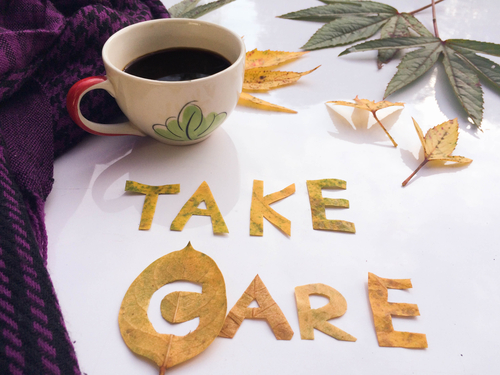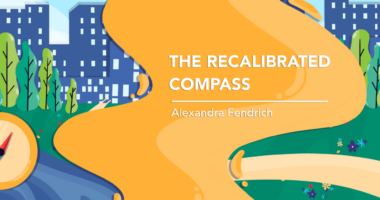How Stress Impacted My Ankylosing Spondylitis

When I was officially diagnosed with ankylosing spondylitis (AS) two years ago, I’d been having symptoms for the better part of a decade. The diagnosis came at a time when I finally had health insurance and could book myself in to see a rheumatologist at one of the best hospitals in New York City. I was starting to experience more debilitating pain and fatigue, as if I needed to sleep for 20 hours a day.
Unfortunately, at the time, I was also shouldering the weight of a burdensome nine-to-five job; not only was I commuting up to 3.5 hours per day by bus (sitting in one position for hours at a time), but also the environment was rather inflexible and toxic.
I was always missing my exercise and doctor’s appointments because it was so far from my doctor’s office and the place where I do hydrotherapy. On top of everything, I’d lost two family members back to back and signed a contract to write a book, “Light Magic for Dark Times.” Ironically, the book was about trauma recovery, creativity, regeneration, and healing rituals and practices.
While writing, because of the grief and exhaustion, I was in a seemingly endless flare-up. My hips were always locked, my back hurt at a level nine every day without fail, my brain fog was out of control, I always had costochondritis, and all I did was worry — that I’d miss my bus to work, about my health, and about advocating for myself at work.
Throughout this time, I applied the techniques I was writing about in my book to my own life. I was being mindful with my body and food, taking time to create daily rituals of mindfulness and breathing, stretching at regular intervals, journaling through the dark moments, and creating a sanctuary in my space with objects that empowered and relaxed me. Being mindful about creating time to breathe and slow down deeply helped me.
Long story short, the stress was still absolutely insurmountable. I became depressed, lost, and sleepless. About a month before my book came out, I chose to leave my job. I couldn’t do the commute every day and sacrifice my health and sanity. I had the privilege of falling back on my skill set as a writer and editor, so I became a full-time freelance writer (and now am working on my second book as well as writing for several outlets). I’m happier than I’ve ever been (even if, you know, I’m a little broker than I was).
The lessons I learned were loud and clear:
We cannot push our bodies to the breaking point.
People with AS simply cannot push themselves to limits that they cannot take. At some point, everything breaks and you end up losing yourself in the pain and powerlessness. Balancing AS means knowing when to stop. But when you never get a chance to stop, something has to give. It’s so important to realize that we have to make adjustments to our lives to prevent living at a perpetual breaking point.
We have to change our lives to accommodate our health.
Sometimes we have to do the hard thing — leave or change jobs for something easier, closer, or more flexible. Sometimes we have to have uncomfortable conversations, ask for help, seek resources for support, and say no to opportunities. In the end, what we end up changing could better our lives and make space for even more opportunities and moments of joy — those that fit our lives.
Stress impacts chronic illness and pain levels.
Stress is undeniably and deeply linked to pain. According to a recent study, stress and chronic pain are intrinsically linked — and it also is linked to additional issues such as depression, alcohol abuse, or weight gain. The stress hormone, cortisol, is especially our enemy. According to Healthline, here’s how it works with AS:
“Stressful situations may also unknowingly worsen symptoms of AS. Stress triggers the release of stress hormones like cortisol and adrenaline, which send your body into fight-or-flight mode.
“This increases your blood pressure and heartbeat, and stress hormones stimulate your immune system to release cytokines (a chemical in your body that causes inflammation). Chronic stress can keep your body in an inflammatory state and worsen AS.”
I can’t tell you to quit your job or move to a new house or city, because our situations are all unique and have many complex variables. If you can’t uproot in major ways, please consider finding small ways to implement self-care into your day at daily intervals. You deserve to be happy and at peace.
***
Note: Ankylosing Spondylitis News is strictly a news and information website about the disease. It does not provide medical advice, diagnosis, or treatment. This content is not intended to be a substitute for professional medical advice, diagnosis, or treatment. Always seek the advice of your physician or other qualified health provider with any questions you may have regarding a medical condition. Never disregard professional medical advice or delay in seeking it because of something you have read on this website. The opinions expressed in this column are not those of Ankylosing Spondylitis News, or its parent company, Bionews Services, and are intended to spark discussion about issues pertaining to ankylosing spondylitis.







david knowles
I have AS and looking back to when my first marriage broke up was when the symptoms were at there worst. I had not been diagnosed at this time and being a coal miner I had always had a bad back,but to be honest, it was such hard work most of my workmates also complained of back problems. The stress of the break up also the industry was finishing, my employment was being terminated all compacted to make my pain the worst. I was drinking heavily this did dampen the physical pain for the short term. Now years later I manage my disease better, however, I am not averse to having a drink to dull the pain when it gets too painful and the drugs won't touch it, But thankfully that is not very often.